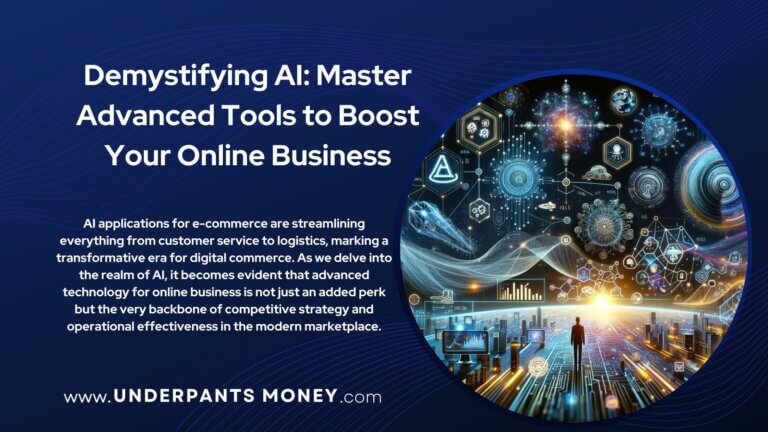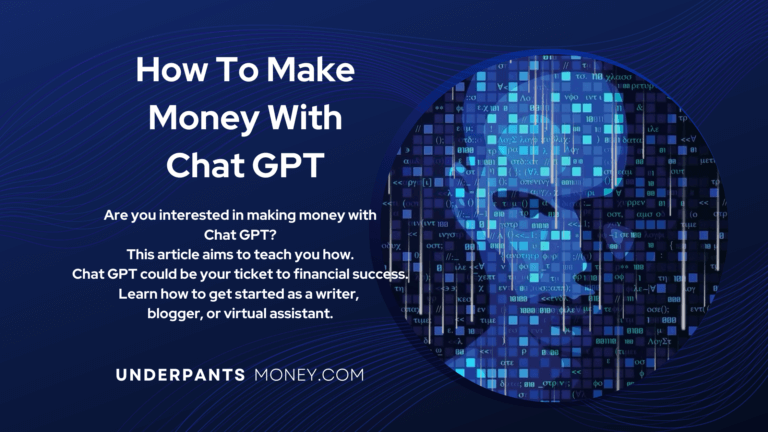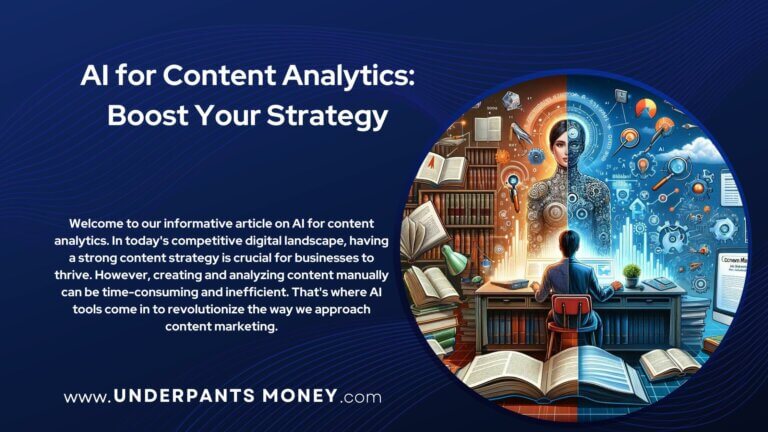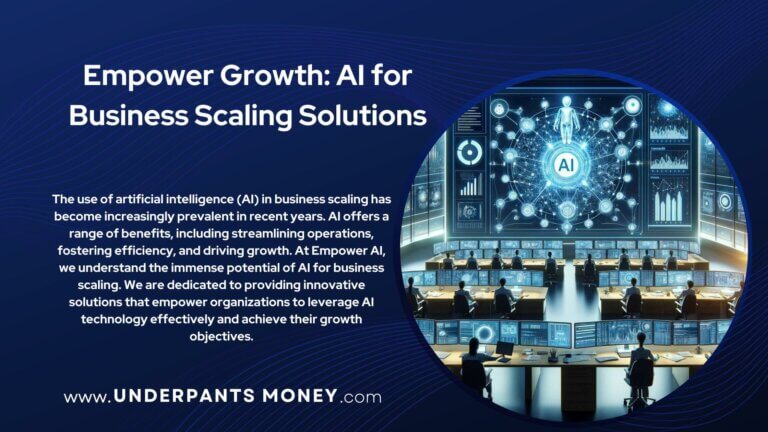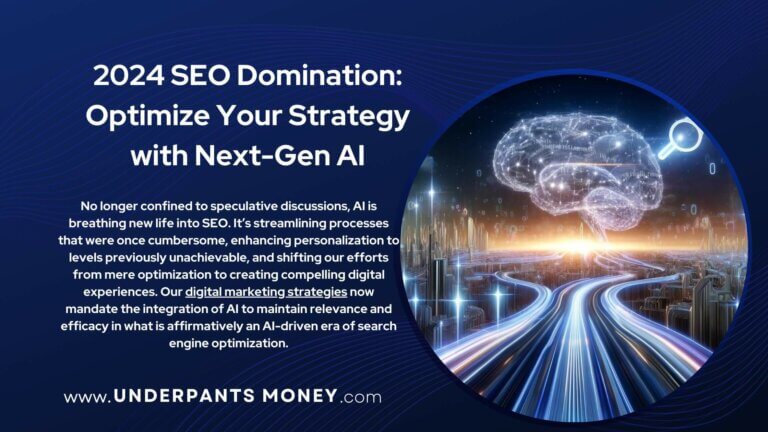AI Ideas for Business: Launching Your Next Venture with Cutting-Edge Innovation
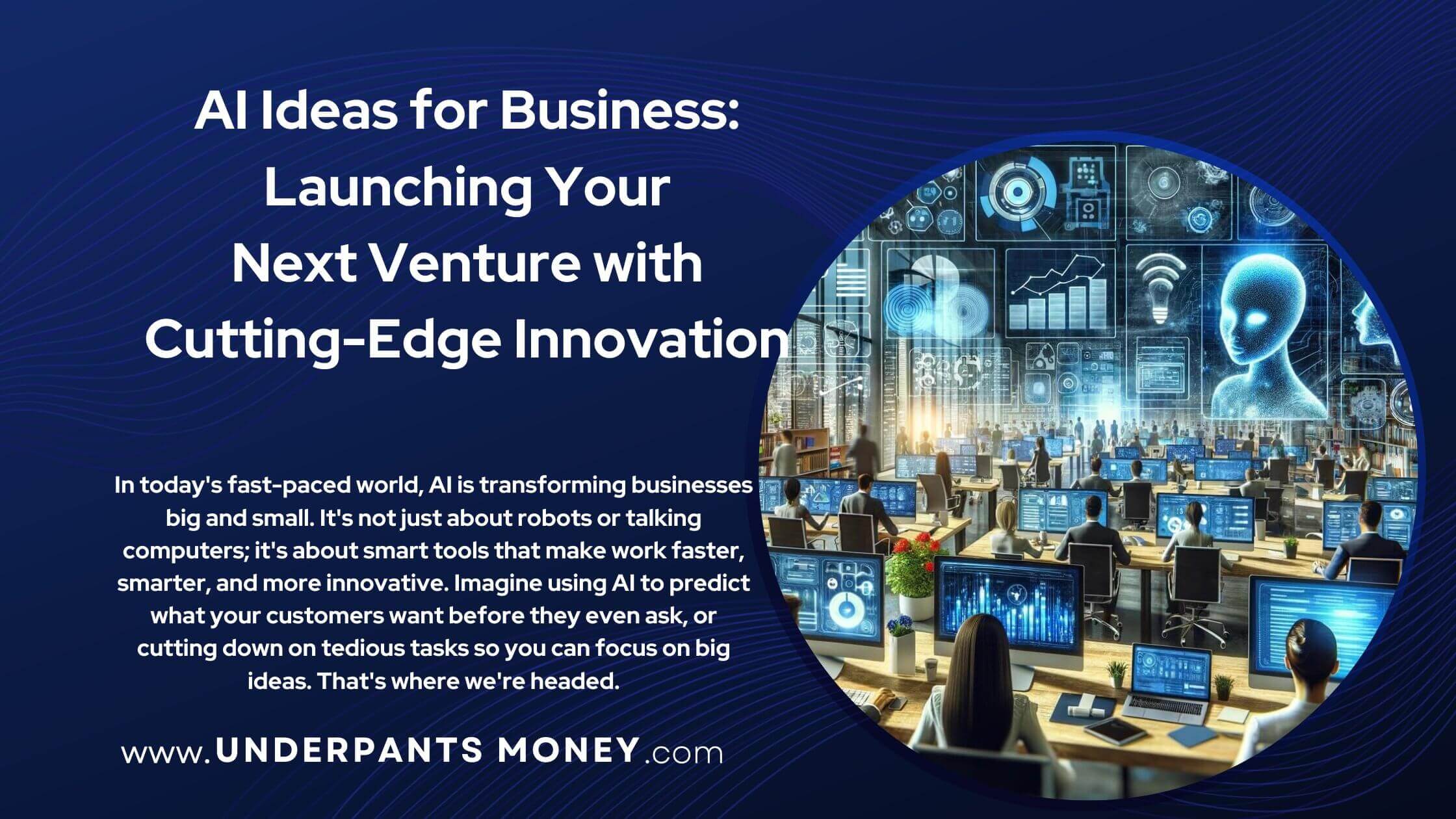
In today’s fast-paced world, AI is transforming businesses big and small. It’s not just about robots or talking computers; it’s about smart tools that make work faster, smarter, and more innovative. Imagine using AI to predict what your customers want before they even ask, or cutting down on tedious tasks so you can focus on big ideas. That’s where we’re headed.
The power of AI in business is clear. By 2025, the AI market in the U.S. alone is expected to hit $190.61 billion. This growth isn’t just numbers on a chart; it’s a sign of how important AI is becoming in every industry. From the voice assistants on our phones to the way we shop online, AI is everywhere.
One of the coolest examples is how Netflix saves $1 billion a year by using AI to recommend shows. Yes, that’s a billion with a ‘B’. This isn’t just about entertainment; it’s a lesson in how understanding what people want can lead to huge savings and even bigger earnings.
So, as we dive into the world of AI for business, remember: this isn’t science fiction. It’s the tool you need to stay ahead in the game, whether you’re launching a start-up or leading a Fortune 500 company. Let’s explore how AI can turn your business ideas into reality, making your work smarter, faster, and more in tune with what your customers need.
Key Takeaways
- AI’s Impact on Efficiency and Innovation: AI can significantly enhance operational efficiency and foster innovation, leading to cost savings, improved customer satisfaction, and new business opportunities.
- Navigating Challenges: Successfully implementing AI requires navigating technical and ethical challenges, emphasizing data privacy, algorithmic fairness, and security.
- Measurable Success: Establishing clear KPIs and continuously monitoring AI projects is essential for measuring their impact and ensuring they deliver real business value.
- Continuous Adaptation: The field of AI is rapidly evolving, necessitating businesses to stay informed and adaptable to leverage new technologies and methodologies.
- Cultural Shift: Embracing AI requires a cultural shift within organizations, fostering an environment of continuous learning and innovation.

Understanding AI’s Potential for Operational Efficiency
Streamlining Operations with AI: Efficiency is key to staying competitive. Tools like Google Cloud’s AI Platform can automate routine tasks, from data entry to scheduling, freeing up your team to focus on more strategic work. For inventory management, AI systems can predict stock levels, reducing waste and ensuring you always meet customer demand.
AI in Logistics: Consider using AI to optimize your supply chain. UPS, for example, uses its AI-powered ORION tool to analyze delivery routes in real-time, saving millions of miles and gallons of fuel each year. This kind of efficiency not only cuts costs but also reduces your carbon footprint.
Enhancing Customer Experiences Through AI
Personalization at Scale: AI tools like Adobe Sensei leverage machine learning to offer personalized experiences to customers, from product recommendations to tailored content. This level of personalization was once only possible with a significant manual effort but can now be achieved at scale with AI.
Customer Service Reinvented: Chatbots and virtual assistants have transformed customer service. Platforms like Intercom and Drift use AI to provide instant support to customers, answering questions and solving problems 24/7 without the need for human intervention.

Crazy AI Ideas That Worked
AI for Creative Content: Did you know AI can write poetry, compose music, and even create artwork? Tools like OpenAI’s GPT-3 have been used to generate creative content that’s indistinguishable from human-made. This opens up new avenues for content creation that can engage audiences in novel ways.
Revolutionizing Industries with AI: From AI that predicts fashion trends to algorithms that can detect diseases from medical images faster and more accurately than human experts, the potential for “crazy” AI ideas to change the world is unlimited. The key is to think about how AI can solve a problem in a way that was never possible before.
In exploring AI ideas for your business, remember that the goal is not just to adopt new technology for the sake of it. It’s about finding smart, efficient, and sometimes unconventional ways to solve problems, improve operations, and create value for your customers. Whether it’s through enhancing efficiency, personalizing customer experiences, or breaking new ground with innovative applications of AI, the opportunities are endless. Let these ideas inspire you to think differently about how AI can be integrated into your business strategy.
Planning Your AI Project
Identify the Problem: Every successful AI project starts with a clear understanding of the problem you’re trying to solve. Is it about improving customer service, optimizing inventory, or perhaps personalizing marketing efforts? Being precise about the problem will guide your AI solution’s direction.
Define Project Scope and Objectives: Set clear, measurable goals for what your AI project aims to achieve. Consider using the SMART criteria (Specific, Measurable, Achievable, Relevant, Time-bound) to outline your project objectives. This will help in keeping the project focused and assessing its success.
Select the Right AI Tools: Depending on your project’s needs, explore AI tools and platforms that can help you build and deploy your solution. For custom AI models, TensorFlow and PyTorch offer extensive libraries for machine learning development. For those looking for more plug-and-play solutions, IBM Watson and Google Cloud AI provide a range of pre-built models and services that can be tailored to specific business needs.
Building Your AI Team
Assemble a Cross-functional Team: AI projects often require a mix of skills, including data science, software engineering, and domain expertise. Ensure your team includes members who can cover these areas. Additionally, consider the role of project managers and UX designers to ensure the project is well-coordinated and user-centric.
Partner with AI Experts: If your in-house team lacks AI expertise, consider partnering with external AI consultants or agencies. They can provide the necessary know-how and experience to accelerate your project development.

Leveraging AI Tools and Platforms
Utilize Development Platforms: Leverage AI development platforms like Microsoft Azure AI or Amazon Web Services (AWS) AI and Machine Learning services. These platforms offer tools and infrastructure to build, train, and deploy AI models efficiently.
Experiment with AI APIs: For businesses looking to integrate AI capabilities without building models from scratch, AI APIs (Application Programming Interfaces) can be a great option. Google Cloud’s AI Hub, for example, offers ready-to-use machine learning models that can be easily integrated into your applications.
Embrace Open Source: The AI community is known for its strong open-source culture. Platforms like GitHub offer access to countless open-source AI projects and libraries. These resources can significantly reduce development time and provide inspiration for your projects.
By carefully planning your AI project, assembling the right team, and leveraging the best tools and platforms, you can turn your AI ideas into impactful business solutions. Remember, the key to a successful AI project lies not just in the technology but also in its alignment with your business objectives and the value it delivers to your customers.

Navigating Challenges and Ensuring Success
Adopting AI technology comes with its set of challenges, from technical hurdles to ethical considerations. Here’s how businesses can navigate these waters and ensure their AI projects are successful and aligned with their core values.
Overcoming Technical and Ethical Hurdles
Data Privacy and Security: With AI’s heavy reliance on data, protecting sensitive information is paramount. Tools like IBM Watson offer features designed to help manage data privacy and security. Businesses need to adhere to regulations like GDPR and invest in secure data storage and processing practices.
Bias and Fairness: AI systems are only as unbiased as the data they’re trained on. To combat this, initiatives like Google’s AI for Social Good integrate fairness into AI development. Regular audits of AI algorithms for bias and implementing diverse datasets can help reduce unfair outcomes.
Technical Complexity: AI projects can be complex and challenging to implement. Using platforms like TensorFlow, which offers comprehensive resources and community support, can help teams tackle the technical intricacies of AI development.
Measuring AI Impact and ROI
Establishing KPIs: Key Performance Indicators (KPIs) specific to AI projects are essential for measuring success. These could range from improved customer satisfaction scores due to chatbot interactions to increased sales from personalized recommendations.
Continuous Monitoring and Feedback: AI systems improve over time with more data and feedback. Tools like Amazon SageMaker allow for easy model updates and monitoring, ensuring your AI solutions evolve with your business needs.
Cost-Benefit Analysis: Weighing the initial investment against the long-term benefits is crucial. AI can offer significant ROI through efficiency gains, cost savings, and new revenue opportunities. However, it’s important to consider the full scope of costs, including development, training, and maintenance.

Preparing for What’s Next
The AI landscape is continuously evolving, and staying informed about the latest trends and technologies is crucial for businesses looking to leverage AI. Engaging with AI communities, attending industry conferences, and keeping an eye on pioneering research can help businesses stay ahead of the curve.
Adapting to AI Advances: As AI technology progresses, businesses must be ready to adapt their strategies. This might mean upgrading existing systems, exploring new AI capabilities, or pivoting project goals based on new insights.
Fostering an AI-Ready Culture: Building an organizational culture that embraces innovation and continuous learning is vital. Encouraging team members to explore AI technologies and apply them creatively can lead to groundbreaking ideas and solutions.
By tackling the challenges head-on, closely monitoring the impact of AI projects, and staying adaptable to new developments, businesses can harness the transformative power of AI to drive success and innovation. The journey of integrating AI into your business is ongoing, but with the right strategies, the potential for growth and improvement is limitless.
Wrap Up
As we’ve explored the vast landscape of AI ideas for business, it’s clear that artificial intelligence holds transformative power for companies willing to embrace it. From streamlining operations to enhancing customer experiences and pushing the boundaries with innovative projects, AI offers a plethora of opportunities for businesses to innovate, grow, and stay competitive in the digital age. Despite the challenges, including technical hurdles, ethical considerations, and the need for continuous adaptation, the potential benefits of AI in business far outweigh the obstacles.
FAQs
How can small businesses begin implementing AI?
Start by identifying specific problems that AI can solve, such as customer service automation with chatbots or sales predictions. Leverage cloud-based AI services for cost-effective solutions.
What are some common pitfalls in AI project implementation?
Underestimating the importance of clean, diverse data sets; overlooking the need for cross-functional teams; and failing to align AI projects with business objectives are common pitfalls.
Can AI replace human workers?
While AI can automate routine tasks, it’s most effective when augmenting human capabilities, not replacing them. AI can free up time for creative and strategic tasks that require human insight.
How do you measure the ROI of AI projects?
Measure ROI by comparing the costs of AI implementation against the benefits, such as increased efficiency, revenue growth, and customer satisfaction improvements.
What ethical considerations should businesses keep in mind when using AI?
Businesses should consider data privacy, bias mitigation in AI algorithms, and the potential impact of AI on employment within their industries.


